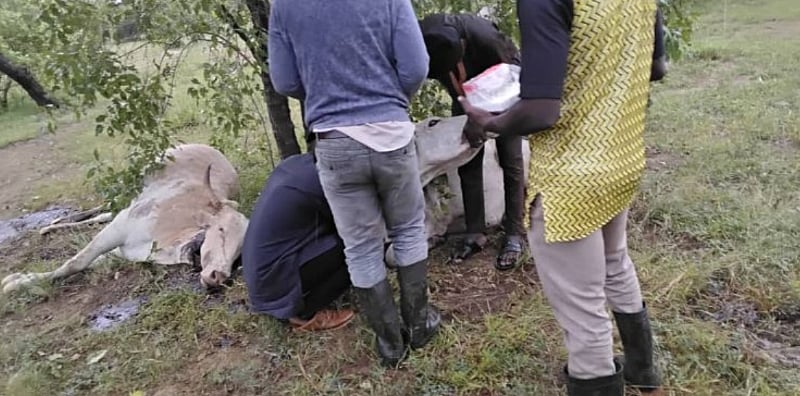The Veterinary Services Directorate in Ghana has issued a stern warning to residents of Disah and surrounding communities following a concerning surge in cattle deaths. The unusual spate of fatalities has prompted officials to caution the public against purchasing or consuming meat from any deceased animals, emphasizing the potential health risks associated with such consumption. Dr. Benjamin Kissi Sasu, Risk Communications Officer at the Veterinary Services Directorate, confirmed that tissue samples from the deceased cattle have been sent to the Central Veterinary Laboratory for thorough analysis. The results of these tests are expected shortly and will play a crucial role in identifying the underlying cause of the deaths.
The sudden and unexplained nature of the cattle deaths has raised immediate concerns among veterinary authorities and local communities. Dr. Sasu urged residents in the affected areas to exercise extreme caution and promptly report any sudden deaths of their livestock to the nearest veterinary center. This rapid reporting is critical to facilitate further investigation, including the collection of additional samples for testing. The timely reporting of these incidents will allow veterinary officials to track the progression of the issue and implement appropriate control measures.
Initial reports suggest a possible link between the cattle deaths and recent vaccinations administered by a foreign worker employed by local farmers. This revelation has raised serious concerns about the potential dangers of unregulated veterinary practices and the importance of ensuring that all animal healthcare providers are properly qualified and adhere to established protocols. The incident underscores the need for greater oversight and regulation of veterinary services to protect both animal and public health. Detailed investigations will be necessary to confirm any connection between the vaccinations and the subsequent deaths.
The North Gonja District Environmental Health Officer, Adam Mary, has taken swift action in response to the unfolding situation. Urgent public announcements have been disseminated throughout the region to prevent potentially contaminated meat from entering the food supply chain. This proactive approach aims to safeguard public health by minimizing the risk of exposure to any potential pathogens or toxins that may be present in the deceased cattle.
Furthermore, meat vendors in surrounding towns and at the Tamale slaughterhouse have been specifically warned against handling or processing any cattle originating from the affected areas. This targeted intervention is crucial in containing the potential spread of any disease or contamination. The collaboration between veterinary and environmental health authorities demonstrates a coordinated effort to address the issue comprehensively and protect the public from potential harm.
Officials have emphasized that monitoring efforts are ongoing and that they will continue to closely observe the situation. Residents are urged to remain vigilant and adhere to the warnings issued by the Veterinary Services Directorate. Consuming meat from the dead cattle poses a significant health risk, and it is paramount that the public heeds these warnings to protect themselves and their families. The authorities remain committed to identifying the cause of the cattle deaths and implementing appropriate measures to prevent further incidents. Further updates will be provided to the public as new information becomes available.


